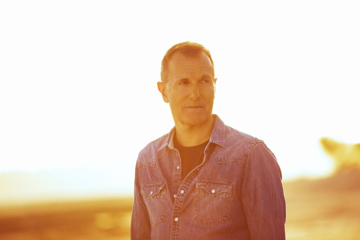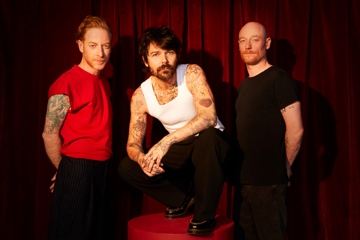Taylor Swift Is Confronting The Biggest Backlash Of Her Career
Following the release of her new single.

Recently American pop megastar Taylor Swift claimed a victory for women when she won a civil trial against Denver radio host David Mueller. Taylor had alleged that Mueller groped her backside at a 2013 meet-and-greet – and he lost his job. Mueller took her to court. Swift gave a compelling testimony. On winning, she universalised her experience of sexual assault in a statement. Swift acknowledged her privilege in being able to defend herself – and pledged to donate to organisations assisting sexual assault victims. She was widely praised.
The singer/songwriter, 27, probably felt confident that, on dropping her 'event' single, Look What You Made Me Do (LWYMMD), it would be well received. Instead Swift is confronting the biggest backlash of her career. And it's not because she's over-exposed.
In the lead up to LWYMMD, Swift both purged her social media of content and murdered out her website. She posted a series of snake videos – a playfully dark allusion to the snake emojis first directed at her by "haters" after 2016's bitter break-up with Calvin Harris. Swift then revealed that her sixth album, Reputation, the follow-up to 2014's hyper-pop 1989, will unleash on 10 November. The monochrome artwork depicts the usually glamorous Swift styled as a grunge rocker, or riot grrl, against a backdrop of her name in newsprint. It's very reminiscent of Kanye West's The Life Of Pablo. Reputation should be Swift's most meta album.
LWYMMD is dark, hard and edgy – self-consciously so. Produced by fun. guitarist Jack Antonoff, who previously worked on 1989 (and Lorde's Melodrama), the spare song is an odd throwback to late '90s electroclash (think: Miss Kittin). It borrows from both Right Said Fred's novelty dance hit I'm Too Sexy and Peaches' 2003 Operate.
Don't miss a beat with our FREE daily newsletter
LWYMMD is a diss track – but who is Swift dissing? It could be any number of people, from her ex Calvin Harris to longtime nemeses Yeezy (and his wife Kim Kardashian) and Katy Perry. Most plausibly, it's West, because of the "tilted stage" reference. The feud between Swift and West was re-ignited when he rapped in Famous, "I feel like me and Taylor might still have sex/Why? I made that bitch famous." Swift protested, deeming it "misogynistic". West maintained that she'd approved it as a joke. Swift denied it. Then, on Snapchat, Kardashian shared a recorded phone conversation between the pair basically supporting West (though there was no discussion of the "bitch" bit). Swift was caught out playing the victim – which, with West a black man, carries disturbing racial overtones. On Instagram, she merely responded that, "I would very much like to be excluded from this narrative, one that I have never asked to be a part of, since 2009". But Swift is the one continuing it.
Lyrically, LWYMMD is iffy – the self-centred title unnervingly echoing the defence of the bully or abuser. Swift sings, "I don't like your little games." She also masquerades as a femme fatale. "I've got a list of names and yours is in red, underlined." Still, LWYMMD is humorous. On what sounds like a voicemail recording, Swift raps, "I'm sorry, the old Taylor can't come to the phone right now/Why? Oh, 'cause she's dead!" Not an obvious hit, LWYMMD has proven musically polarising. Yet Swift is already marketing Reputation merch, with snake rings and a phone stand. Petty in punk. She'll premiere the film-clip at Sunday's MTV Video Music Awards. But peepz are about judging Swift, not her song.
While pop music once revelled in mystique and artifice, contemporary audiences expect stars to declare their identities. Here, Swift's manoeuvres have been problematic. Swift started as a country singer, debuting in the mid-noughties. No archetypal American sweetheart, she became, er, famous for writing raw songs about her relationships. Over time she's acquired 'urban' influences – cue Shake It Off. Nonetheless, in co-opting hip-hop, Swift has never addressed America's historical racial injustices. And, with 1989, she won her second Grammy for Album Of The Year over Kendrick Lamar's Zeitgeist To Pimp A Butterfly. Pre-1989, Swift embraced feminism, only to be accused of opportunistically rebranding herself rather than experiencing an awakening. (Bad Blood contradicted her affirmations of sisterhood.)
But the current dragging of Swift on Twitter – and in media circles – is troubling. Some commentators are offering conspiratorial speculation over tangible cultural critique – troubling given growing concerns about 'fake news'. Increasingly, Swift is criticised for her lack of political engagement. Indeed, Swift has never declared support for any US party. Importantly, she's not denounced Trump. Back in 2008 Swift performed at the Republican National Convention. Regardless, she's since commended President Obama – and the former First Lady Michelle. When in 2012 the latter presented Swift with an award for her philanthropy, the singer hailed her "a role model".
Swift isn't the first pop star to avoid political discourse as to not alienate fans. Even David Bowie ambiguously proclaimed himself "apolitical" in the late '70s (this after making fucked-up statements about fascism during his The Thin White Duke era that he later attributed to cocaine). Today neutrality is seen as a privilege. And, as a feminist, Swift might be expected to be transparent. But it's difficult to imagine that Swift would secretly support Trump with his vile pussy-grabbing line. Swift was plausibly a supporter of Hillary Clinton – the figurehead of white feminism.
More damaging is the suggestion that somehow Swift is a Nazi sympathiser because she inadvertently posed with a guest wearing a customised swastika T-shirt at Katy Perry's birthday (!) in 2009 (Swift's camp stated that she didn't notice). The irony is that, while Kardashian is routinely dismissed as trivial, she was lauded for exposing Swift. Few US intersectional feminists give the Armenian-American credit for raising awareness of the Armenian Genocide – an atrocity studied by the Nazis.
Another conspiracy theory is that Swift is releasing Reputation on 10 November to spite West since it marks the anniversary of his mother's death. Ghastly if true. However, considering that labels usually determine release dates, it's unlikely.
BuzzFeed's Myles E Johnson has written about the (hyper-)politicisation of pop culture figures. He asks if internet shaming of celebrities such as Cardi B and Kardashian over cultural faux pas is constructive to social change – rightly pointing that women, and femmes, of colour are treated more severely (cue Azealia Banks). "The question is are we interested in performing rage on the internet or creating justice and accountability through real-life pedagogical moments?" These digital takedowns have become something else. Female stars are doomed to fail. Perry openly supported Clinton and has addressed her white privilege in interviews and song, ushering in her own brand of 'purposeful pop' with Chained To The Rhythm. But, lack of killer songs aside, Witness flopped for being insufficiently woke. Perry has been mocked to the point where her career is all but over. Would Madonna – infamous for her many controversies, dubious co-options and brilliant reinventions – enjoy such longevity if social media had existed in the '80s? And still no one asks why Beyonce and Rihanna remain the only young black female megastars.
The ultimate irony is that relentless dragging may have even contributed to Clinton's electoral defeat – her credibility and authenticity endlessly eroded over an email account. Unpack Swift, but don't destroy her.






